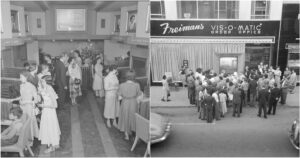
In the 1950s, visionary business entrepreneur Lawrence Freiman opened a new concept store that tried to reinvent the way people purchased things.
“Vis-O-Matic” was the Amazon Prime of its era: a store equipped with televisions where customers sat down, ordered products off the screen, and then headed home as the company shipped the purchases directly to them.
The Pembroke outpost in Ontario, Canada, reported the Globe and Mail, was “a small air-conditioned shop on the main street, fitted with booths and screens on which color pictures of merchandise articles are to be flashed.”
Customers sat down in front of one of eight booths fitted with 27-square-inch color televisions. The various product catalogs were stored similarly to microfilm in libraries and the staff changed the images being loaded on the screen depending on what the customer was looking for.
Built into each booth were three buttons: an “advance” button that toggled forward through the catalog, a “reverse” button that toggled back, and a knob that let customers jump past a large volume of slides. In all, 3,750 products were digitized and available for shipment to Pembroke.
 When customers settled on a product, they wrote down their order on a notepad that, Women’s Wear Daily reported, was actually integrated into the booth armrests for easy access. Customers handed the paper to one of four “sales counselors” who used a teletype, a precursor to the fax, to send it back to Ottawa.
When customers settled on a product, they wrote down their order on a notepad that, Women’s Wear Daily reported, was actually integrated into the booth armrests for easy access. Customers handed the paper to one of four “sales counselors” who used a teletype, a precursor to the fax, to send it back to Ottawa.
Then, at least per the official pitch from A.J. Freiman, “the goods are delivered the next day by mail or express”.
On June 14, only a week after the Pembroke Vis-O-Matic store opened, Freiman told a local journalist, “Our first experiences indicate there is no question but that we can sell anything by this method.”
Women’s clothing—especially dresses, sportswear and shoes—were the biggest seller on the Vis-O-Matic screens, with clothing for children following closely behind.
Yet, according to Freiman, “Business has also been done at the Pembroke store on such items as major appliances, radios, linoleum.”
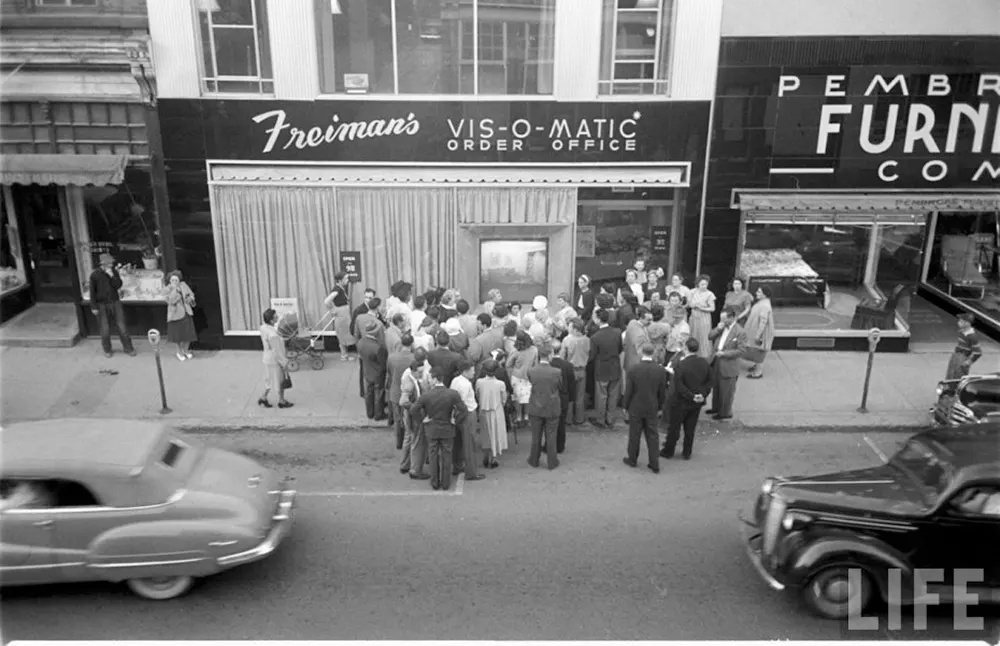
Still, Freiman was well aware that his store wouldn’t be profitable in the short term. The cost of shipping individual orders the nearly 100 miles from Ottawa to Pembroke was far too massive to offset any profits unless customers throughout Canada were placing remote orders. He repeatedly clarified that the Pembroke store was an experiment, and “we shall continue to proceed cautiously.”
There do not appear to have been further reports on the Vis-O-Matic between 1951 and 1971, when A.J. Freiman was sold to retail giant Hudson’s Bay, and most consumer culture historians aren’t familiar with the innovation.


Photos of Vis-O-Matic, the pre-Internet online shopping store, 1950s
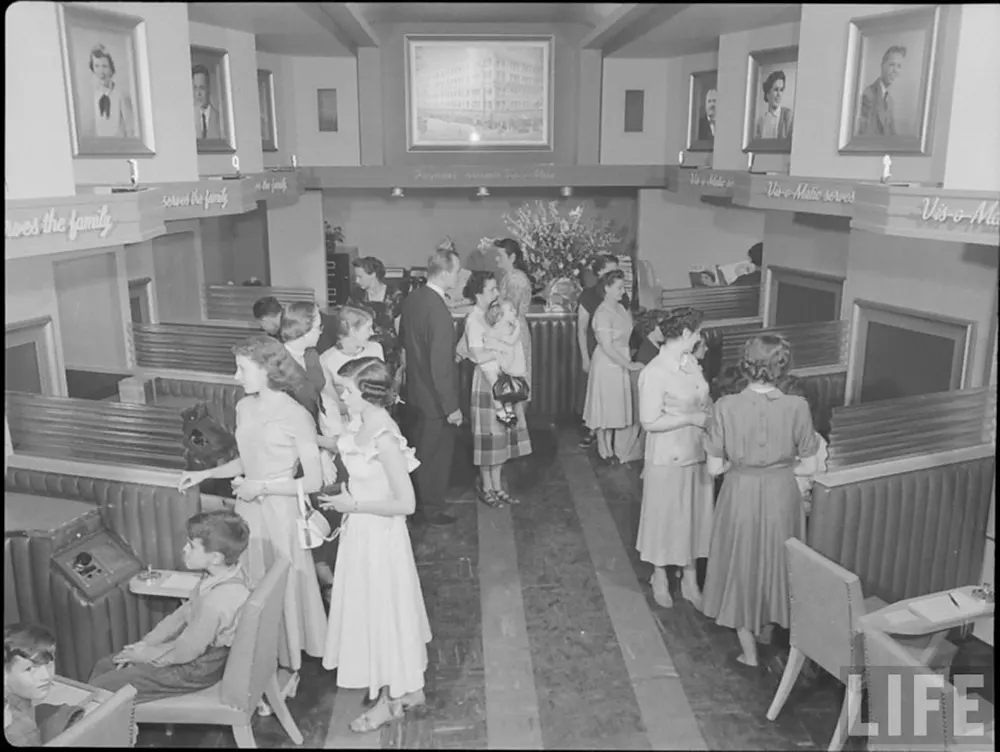

Photos of Vis-O-Matic, the pre-Internet online shopping store, 1950s


Photos of Vis-O-Matic, the pre-Internet online shopping store, 1950s
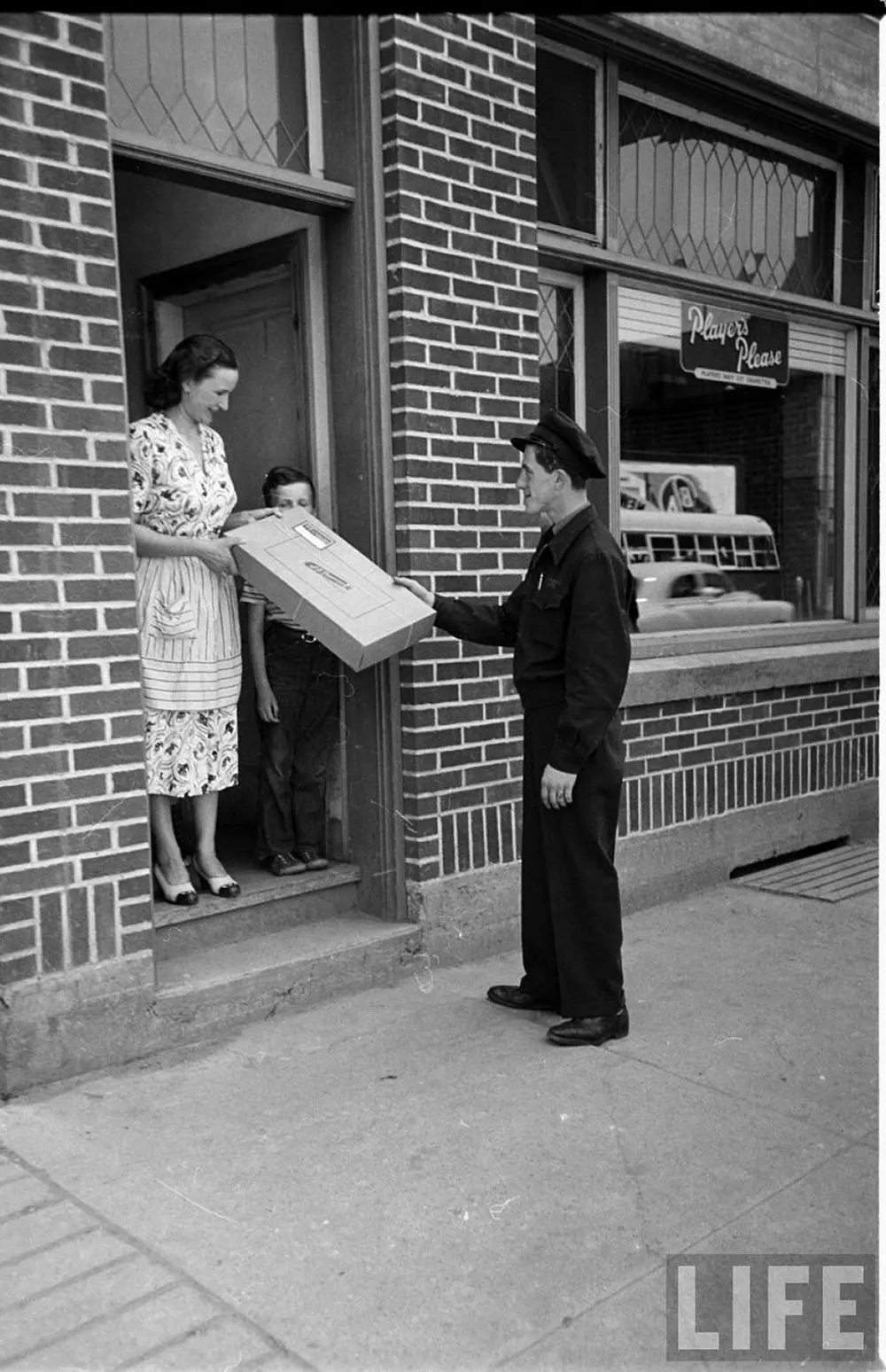

Photos of Vis-O-Matic, the pre-Internet online shopping store, 1950s
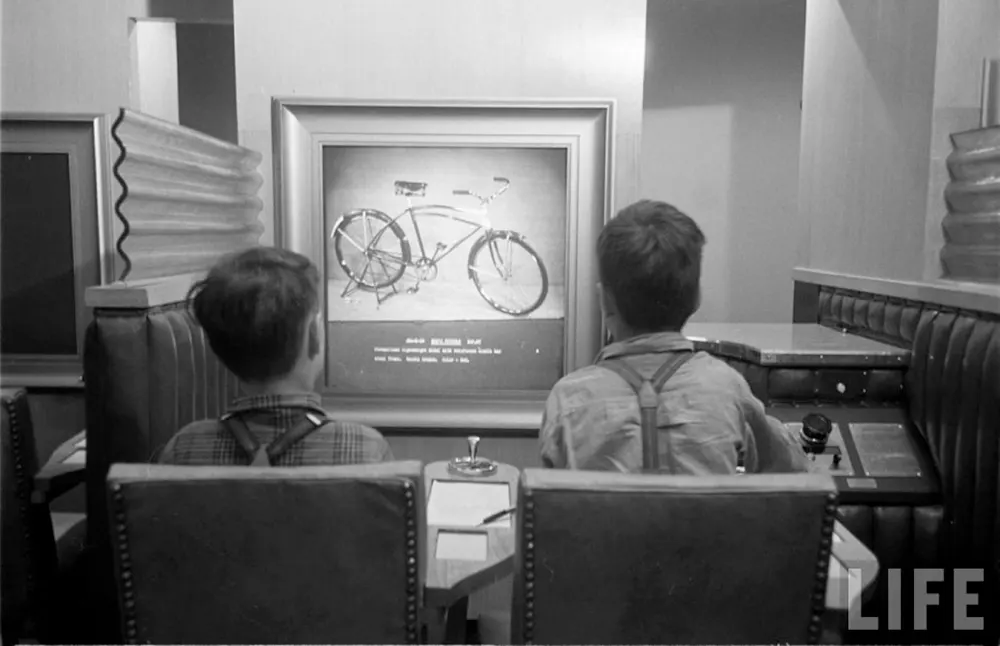

Photos of Vis-O-Matic, the pre-Internet online shopping store, 1950s

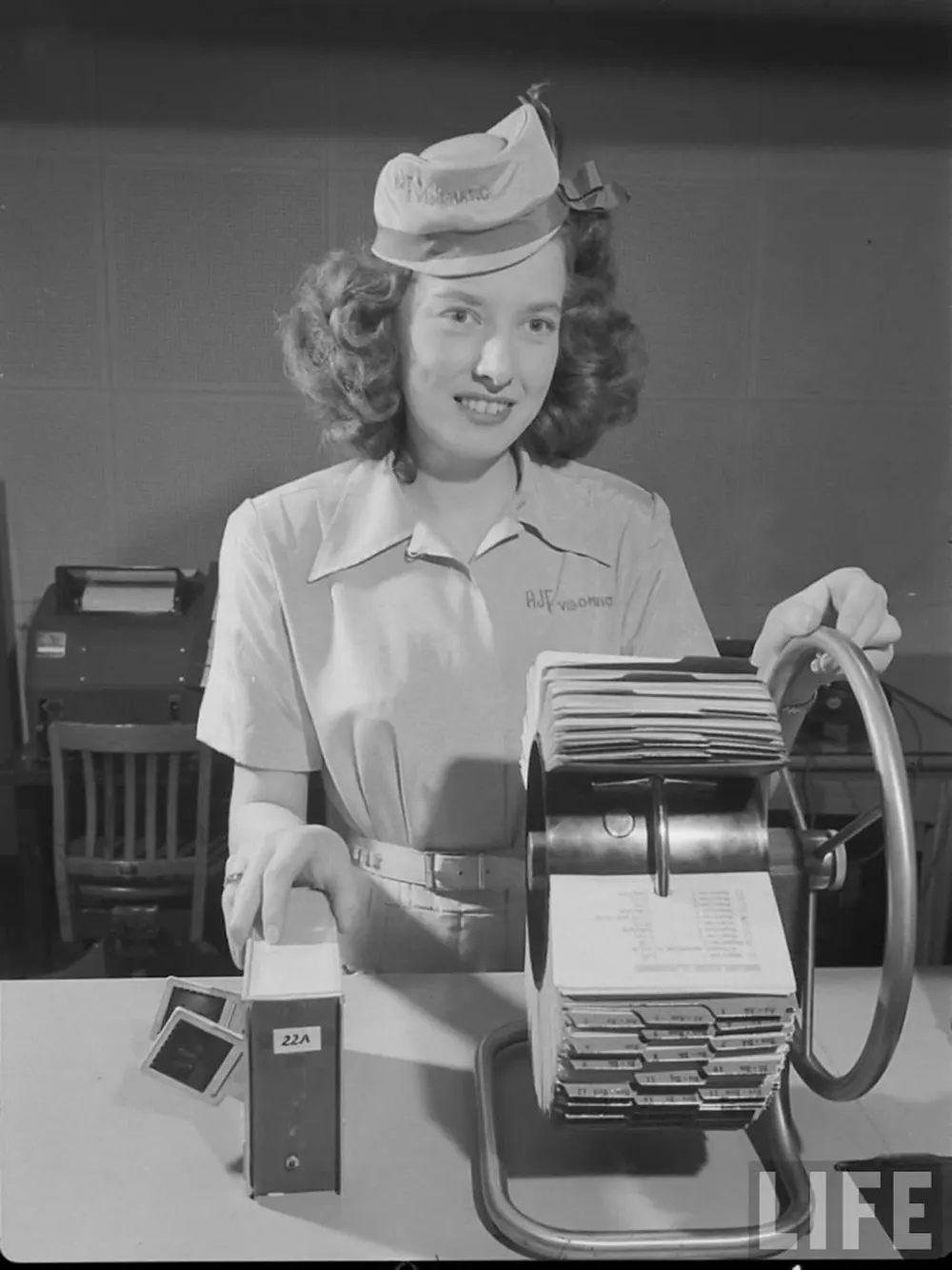
Photos of Vis-O-Matic, the pre-Internet online shopping store, 1950s
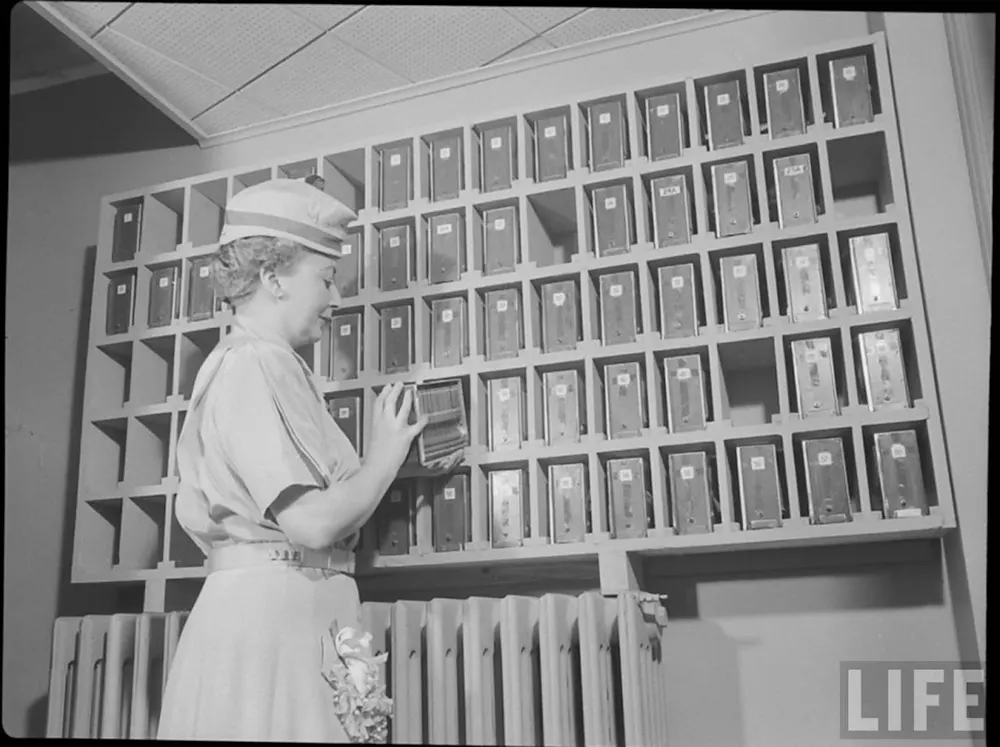
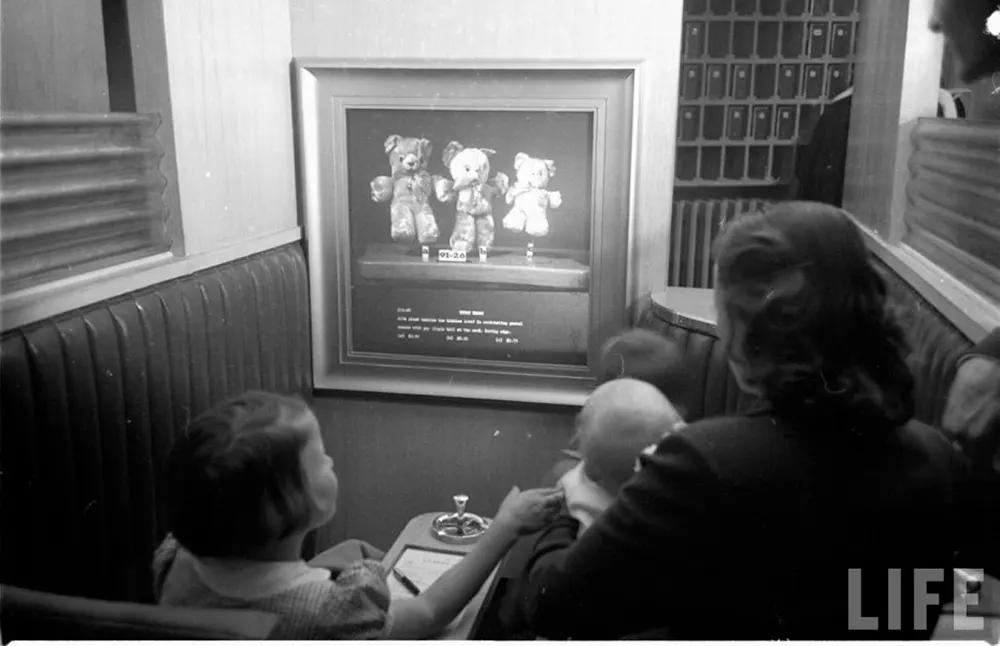
Photos of Vis-O-Matic, the pre-Internet online shopping store, 1950s

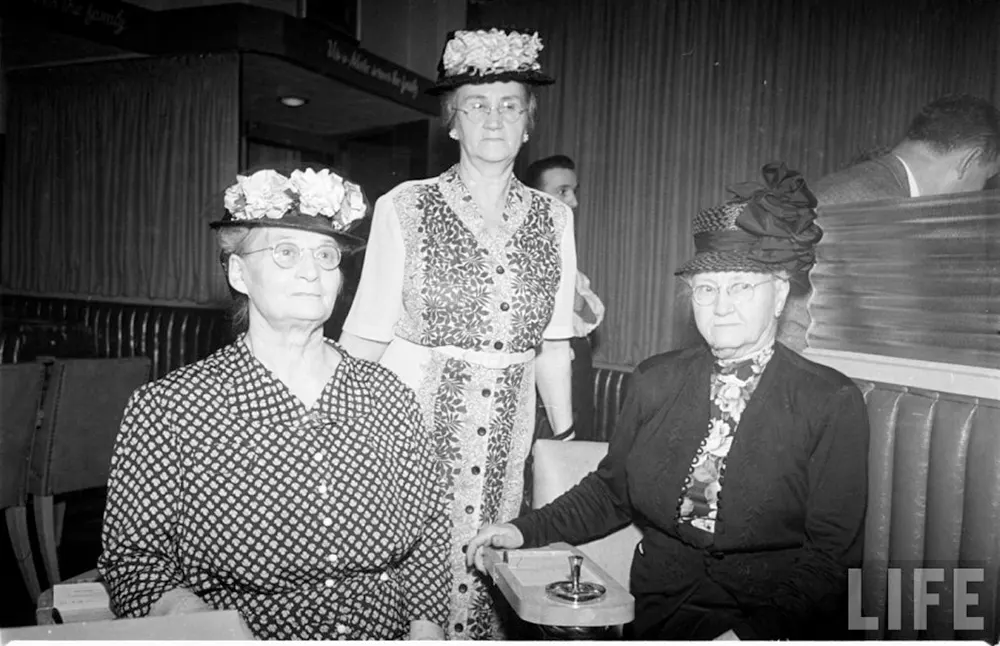
Photos of Vis-O-Matic, the pre-Internet online shopping store, 1950s


Photos of Vis-O-Matic, the pre-Internet online shopping store, 1950s

Photos of Vis-O-Matic, the pre-Internet online shopping store, 1950s


Photos of Vis-O-Matic, the pre-Internet online shopping store, 1950s
